Today Current Affairs: 10th June 2021 for UPSC IAS exams, State PSC exams, SSC CGL, State SSC, RRB, Railways, Banking Exam & IBPS, etc
Table of Contents
ASEAN Meeting:
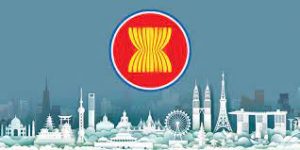
China hosted a meeting of foreign ministers from the 10 Association of Southeast Asian Nations (ASEAN) countries.
- The meeting marks the 30th anniversary of China-ASEAN dialogue.
- With this meeting China looks to deepen its economic ties with the region as well as push back the renewed effort at regional engagement from the US, as well as from the QUAD (Quadrilateral Framework) grouping.
- QUAD earlier this year came out with a regional vaccine initiative.
Key Points:
- China’s Cultural Diplomacy:
- Reiterated that China and ASEAN should jointly carry forward Asian values in a subtle dig at the West.
- China in 2014 had put forward the idea that it was for “Asian people to uphold Asia’s security”.
- Covid-Vaccines:
- China offered ASEAN countries its vaccines as well as closer cooperation on joint vaccine development and production.
- Maritime Security & Disputes:
- China called for considering the lifting of China-ASEAN ties to comprehensive strategic partnership and strive for an early agreement on a code of conduct in the South China Sea.
- China is banking on deep economic links to both offset maritime disputes and the push among some ASEAN countries for closer defense ties with the US amid their concerns about China’s growing military footprint in the South China Sea.
- Regional Comprehensive Economic Partnership:
- China pushed for the early implementation of the Regional Comprehensive Economic Partnership (RCEP), which was signed by China, ASEAN countries, Japan, South Korea, Australia and New Zealand in November 2020.
- India withdrew from the RCEP largely because of concerns it would open it up to Chinese goods amid an already wide trade imbalance with China, and the failure of the agreement to adequately open up to services.
Association of Southeast Asian Nations:
- It is a regional grouping that promotes economic, political, and security cooperation.
- It was established in August 1967 in Bangkok, Thailand with the signing of the ASEAN Declaration (Bangkok Declaration) by the founding fathers of ASEAN, namely Indonesia, Malaysia, Philippines, Singapore, and Thailand.
- Its chairmanship rotates annually, based on the alphabetical order of the English names of Member States.
- ASEAN countries have a total population of 650 million people and a combined Gross Domestic Product (GDP) of USD 2.8 trillion.
- It is India’s 4th largest trading partner with about USD 86.9 billion in trade.
- Members: Brunei, Cambodia, Indonesia, Laos, Malaysia, Myanmar, the Philippines, Singapore, Thailand, and Vietnam..
Railways Gets 5 MHz Spectrum:
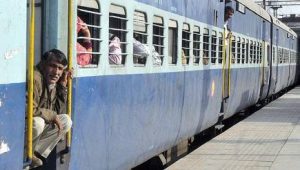
The Union Cabinet approved the allotment of a 5 MHz spectrum in the 700 MHz frequency band to the Indian Railways for improving its communication and signaling systems.
- Railways have also approved an indigenously developed Train Collision Avoidance System (TCAS).
- The project, targeted to be completed in five years, is estimated to cost over Rs. 25,000 crore.
- The spectrum charges will be levied based on a formula as prescribed by the Department of Telecommunications for Royalty Charges and License Fee for captive use as recommended by the Telecom Regulatory Authority of India (TRAI).
- With this spectrum, the railways will introduce Long-Term Evolution (LTE)-based Mobile Train Radio Communication (MTRC) on its routes.
- The Railways currently relies on optical fibre for its communication network but with the allocation of fresh spectrum, it will be able to use high-speed radio on a real-time basis.
- LTE is a fourth-generation (4G) wireless standard that provides increased network capacity and speed for cellphones and other cellular devices compared with third-generation (3G) technology.
Global Economic Prospects: World Bank:
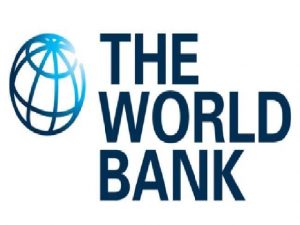
The World Bank has released its June 2021 Global Economic Prospects where it has forecast India’s GDP growth to be 8.3% for the year 2021-22.
- India’s economy is expected to grow at 8.3% for Fiscal Year 2021-22, 7.5% for 2022-23 and 6.5% for 2023-24.
- The world economy is expected to expand 5.6%, the fastest post-recession growth rate in eighty years.
- However, global output will still be 2% below pre-pandemic projections by year-end.
For FY 2020-21:
- The projected growth compares to the worst ever contraction of 7.3% in FY 2020-21 and 4% expansion in 2019-20.
- India’s recovery is being hampered by the largest outbreak of any country since the beginning of the pandemic.
For FY 2021-22:
- The forecast for FY22 (8.3%) factors in expected economic damage from an enormous second Covid-19 wave and localised mobility restrictions since March 2021.
For FY 2022-23:
- Growth is expected to slow to 7.5% as a result of the pandemic’s lingering effects on the financial position of households, companies, and banks and possibly low levels of consumer confidence and heightened uncertainty around job and incomes.
Central Adoption Resource Authority (CARA).:
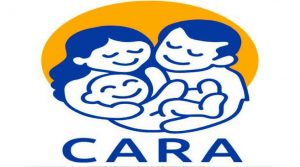
The Supreme Court has directed the States/UTs to take stringent action against private individuals and NGOs who invite people to illegally adopt children orphaned by the COVID-19 pandemic. It said that it was illegal to invite strangers to adopt children without the involvement of the Central Adoption Resource Authority (CARA).
- Central Adoption Resource Authority (CARA) is the nodal body for the adoption of Indian children. CARA primarily deals with the adoption of orphan, abandoned, and surrendered children through its associated /recognized adoption agencies.
- It regulates in-country and inter-country adoptions (in accordance with the provisions of The Hague Convention on Inter-Country Adoption, 1993, ratified by the Government of India in 2003).
- Status: It is an autonomous and statutory body of the Union Women and Child Development Ministry.
- The mandatory registration of CCIs and linking to CARA has been provided in the Juvenile Justice (Care and Protection of Children) Act, 2015.
- It was set up in 1990.
- In 2018, CARA has allowed individuals in a live-in relationship to adopt children from and within India.
- HQ: New Delhi.
Election Commissioner: Anup Chandra Pandey,:
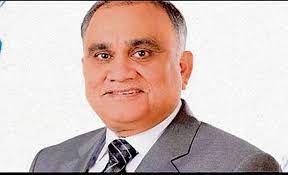
President Ram Nath Kovind appointed Anup Chandra Pandey, a retired Uttar Pradesh-cadre IAS officer, to the post of Election Commissioner. Following the elevation of Sushil Chandra as the CEC, the position of an EC was vacant since April 13.
- The power to appoint the CEC and the ECs lies with the President of India under Article 324(2) of the Constitution, which states that “the President shall fix the number of ECs in a manner he sees fit, subject to the provisions of any law made by Parliament”.
- Thus, Article 324(2) left it open for the Parliament to legislate on the issue.
- Procedure: But, in the absence of any Parliamentary law governing the appointment issue, the ECs are appointed by the government of the day, without pursuing any consultation process.
- There is no concept of the collegium and no involvement of the opposition.
- The Commissioners are appointed for a 6-year period, or up to the age of 65 years, whichever is earlier.
- There are no prescribed qualifications for their appointment, although convention dictates that only senior (serving or retired) civil servants, of the rank of the Cabinet Secretary or Secretary to the GoI or an equivalent rank, will be appointed.
The National Scheme Sanctioning Committee (NSSC) Of SBM-G:

The National Scheme Sanctioning Committee (NSSC) of SBM-G approved the Annual Implementation Plan (AIP) of States and UTs.
- It allocated Rs. 40,700 crores under Swachh Bharat Mission (Grameen) towards solid and liquid waste management (SLWM) arrangements support for over 2 Lakh Villages in 2021-22.
- The National Scheme Sanctioning Committee (NSSC) of SBM-G works under the Chairmanship of Secretary, Ministry of Jal Shakti.
- It comprises representatives of the Ministry of Rural Development, Panchayati Raj, Ministry of Housing and Urban Affairs, a representative from State Governments apart sector experts.
- The NSSC reviewed the plans of all States and UTs and provided them guidance to intensify implementation as sanitation and hygiene are of paramount importance in pandemic times.
Carbon Neutral UT: Ladakh:

Convergence Energy Services Limited (CESL) has signed an MoU with the Administration of Union Territory (UT) of Ladakh, to make it a clean, green, and Carbon Neutral UT.
- Under the MoU, various clean energy and energy efficiency programmes will be implemented such as solar mini and microgrid solutions, energy efficient lighting, energy storage-based solutions, efficient cooking stoves and electric mobility solutions in the UT.
- PM Modi, in his Independence Day speech of 2020, said that the Ladakh, Leh and Kargil region will be developed and declared to be a carbon neutral region, a first in the contry.
- While the concept of carbon neutral villages have been considered in India in the past and some villages in Kerala and Manipur have adopted it, this will be the first large region to be carbon neutral.
- Convergence Energy Services Limited (CESL) is a 100% owned subsidiary of Energy Efficiency Services Limited (EESL) under the Ministry of Power.
Global Wind Energy Council:
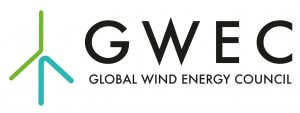
India wind energy market outlook was released by Global Wind Energy Council. As per the report, India has a pipeline of 10.3 GW in Central and State markets.
- These pipelines will drive installations until 2023.
- The report highlights India will install 20 GW of wind energy capacity by 2021-25.
Global Wind Energy Council (GWEC)
- GWEC was established in 2005.
- It provides credible and representative forum for the entire wind energy sector at the international level.
- Its mission is to ensure that, wind power is established as the leading energy source in the world, providing several environmental and economic benefits.
- As per GWEC, even though there are temporary supply chain difficulties, international wind markets are growing strongly. European Union is the leading market in wind energy having around 48 GW of installed capacity.
Antibody Cocktail Treatment For Covid:

Doctors from Sir Ganga Ram Hospital in New Delhi have successfully analysed the monoclonal antibody therapy on two Covid-19 patients. This therapy resulted into fast progression of symptoms within first seven days.
About the therapy:
- Two patients were administered REGCov2 (Casirivimab and Imdevimab). They started to produce resistance against SARS-CoV-2, recovered, and then discharged within 12 hours of administration of doses.
- A healthcare worker with high-grade fever, cough, myalgia, severe weakness, and leucopenia was administered REGCov2 on day six of the disease, according to the press release of the hospital.
- This “antibody cocktail treatment” for coronavirus has the potential to prevent case escalation from mild to severe, which requires hospitalization in 70% of cases.
- This therapy is most suited for “high-risk Covid-19 patients” in the first 10 days of symptom onset and who meet any of the listed criteria like age being 65 years or above.
Monoclonal Antibodies:
- Monoclonal antibodies are identical copies of antibody that targets one specific antigen.
- They are made by cloning a unique white blood cell.
- All subsequent antibodies which are derived this way belong to a unique parent cell. Monoclonal antibodies have a monovalent affinity.
- They bind only to the same epitope which is part of an antigen recognized by antibody)
Costs Of Climate Change In India:
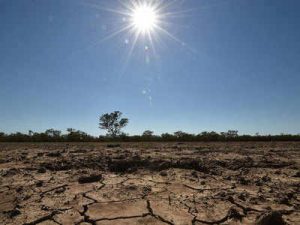
London-based global think tank Overseas Development Institute published its report called “Costs of Climate change in India”. The report analyses economic costs of climate-related risks in-country and the possibility of increased inequality & poverty.
Key Findings:
- As per the report, climate change will affect India’s economy.
- India might lose about 3 to 10 percent of its GDP annually by 2100.
- The poverty rate may also rise by 3.5 percent in 2040.
- India is already experiencing consequences of 1°C of global warming in the form of heavy rainfall. extreme heatwaves, severe flooding, rising sea levels, and catastrophic storms.GDP
- It observed India has made rapid progress in boosting incomes and living standards in the last three decades. However, if no rapid global action is taken, climate change may reverse the development gains of recent decades.
- Climate change is slowing the pace of poverty reduction and increasing inequality in the country.
- Even if temperatures are contained to two degrees Celsius, India is going to lose 2.6 percent GDP annually.
- If the global temperature is contained to 3 degrees Celsius, the loss will magnify to 13.4 percent annually.
Report On Child Labour: UNICEF-ILO:
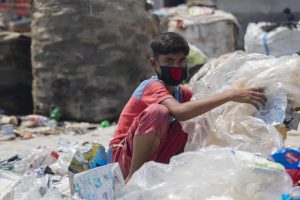
International Labour Organisation (ILO) and UNICEF jointly published a report on child labour. As per the report, the world has marked a rise in child labour in two decades.
Key Findings of report:
- Report highlights, coronavirus crisis might push millions of more youngsters toward child labour.
- As of 2020, the number of child labour stands at 160 million.
- It has increased by 8.4 million in four years.
- The number started increasing before the covid-19 pandemic hit, marking a dramatic reversal of the downward trend where numbers decreased by 94 million between 2000 and 2016.
- Amid the covid-19 pandemic, 1 in 10 children globally was engaged in child labour.
- Sub-Saharan Africa is the worst affected country.
- Boys are more likely to be affected. They will account for 97 million out of 160 million children engaging in child labour at the start of 2020.
- The number of children, between ages 5 and 17 doing hazardous work, has increased. About 79 million children were considered to be engaged in hazardous work.
- This could affect a child’s development, education or health.
Confederation Of Hospitality, Technology & Tourism Industry (CHATT):
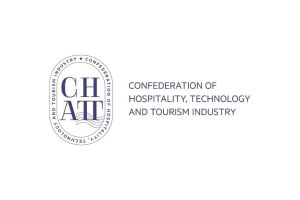
Airbnb, EaseMyTrip, OYO and Yatra have established a new industry association called “Confederation of Hospitality, Technology & Tourism Industry (CHATT)”. CHATT will help small companies and travel & hospitality technology players.
CHATT association:
- It will promote domestic tourism and help in digital transformation of domestic tourism.
- It will act as a thought leader to run training programmes.
- Every member will have the access to CHATT resources and benefits.
- It provides for participation in year-round programmes, access to travel-tech ecosystem, signature business events, inclusion of experts & regional leads among others.
Airbnb Inc.:
- It is an American company which operates an online marketplace for lodging, homestays for vacation rentals and tourism activities.
CORPAT: India and Thailand:
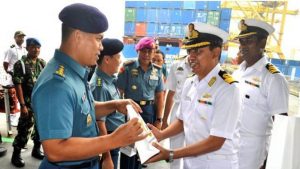
India and Thailand started the 31st edition of Coordinated Patrols or CORPAT, with the aim of reinforcing maritime links between two countries and keeping the Indian Ocean safe and secure for international trade.
CORPAT Exercise:
- This is the first biannual exercise in which Saryu, an indigenously built Naval Offshore Patrol Vessel called Saryu from Indian Navy and His Majesty’s Thailand Ship (HTMS) Krabi along with Dornier Maritime Patrol Aircraft from both navies are participating.
- CORPAT biannual exercise builds up understanding and interoperability between both the navies.
- It facilitates the institution of measures to prevent & suppress unlawful activities such as Illegal Unreported Unregulated (IUU) fishing, maritime terrorism, drug trafficking, armed robbery, and piracy.
- It also helps in enhancing operational synergy by exchanging information to prevent smuggling, illegal immigration and to conduct SAR operations at sea.




